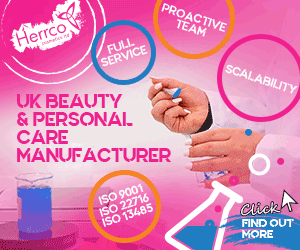The Body Shop has revealed the first annual results of its Enrich Not Exploit commitment.
The newly acquired Natura-owned brand launched the programme in February 2016 with the aim of becoming ‘the world’s most ethical and truly sustainable business’.
The Enrich Not Exploit commitment comprises a series of 14 targets which the brand has pledged to achieve by 2020. The results of the programme one year on have now been detailed in a video series.
“In 2016 our teams across the company embraced new ways of working and business practices, and our progress has been strong,” said Christopher Davis, International Director of Corporate Responsibility and Campaigns.
However, The Body Shop has acknowledged that it is has fallen short of several targets — notably its retail energy usage and sourcing renewable energy goals.
“Whilst we have not succeeded in everything we have done, we have embraced learning and, over the next four years, are determined to maintain progress and I hope go beyond our 2020 ambitions,” added Davis.
So what are the highlights from the 2016 report and what has The Body Shop achieved so far?
1. A positive workforce
The Body Shop pledged that by 2020, it would include 40,000 economically vulnerable people into its supply chain. In 2016, the brand helped over 20,000 people around the world.
2. Naturally beautiful ingredients
Last year The Body Shop introduced one new ingredient into its Community Trade programme (its equivalent of FairTrade). It plans to double its Community Trade programme from 19 to 40 ingredients by 2020. In 2017, the brand also introduced almond oil and milk from Spain, bananas from Ecuador and roses from England to the list.
3. Clean packaging
It has also boosted the environmental profile of its packaging with 58% of its product packs no longer containing fossil fuels. The Body Shop says it is making progress to meet its 70% target.
4. Switching off the store lights
Meanwhile, The Body Shop’s retail energy consumption only dropped by 5% instead of reaching its 10% target. According to the sustainability report, the company initially believed it could reduce its footprint by 10-15% by asking staff to adapt their behaviour.
5. Renewable retail
The Body Shop says it now powers 24% of stores via renewable energy and seven markets are now using 100% green energy. The company said this has been a challenge as different markets have different accessibility to renewable energy. It plans for all of its stores to use renewable energy or carbon-balanced energy by 2020.
6. Animal lovers
It has also launched its ‘biggest campaign ever’. This year it launched Forever Against Animal Testing with Cruelty Free International in a bid to receive eight million signatures to support a global ban on the industry practice.




